German 'Frankreich' Invasion of Paris Combat Map




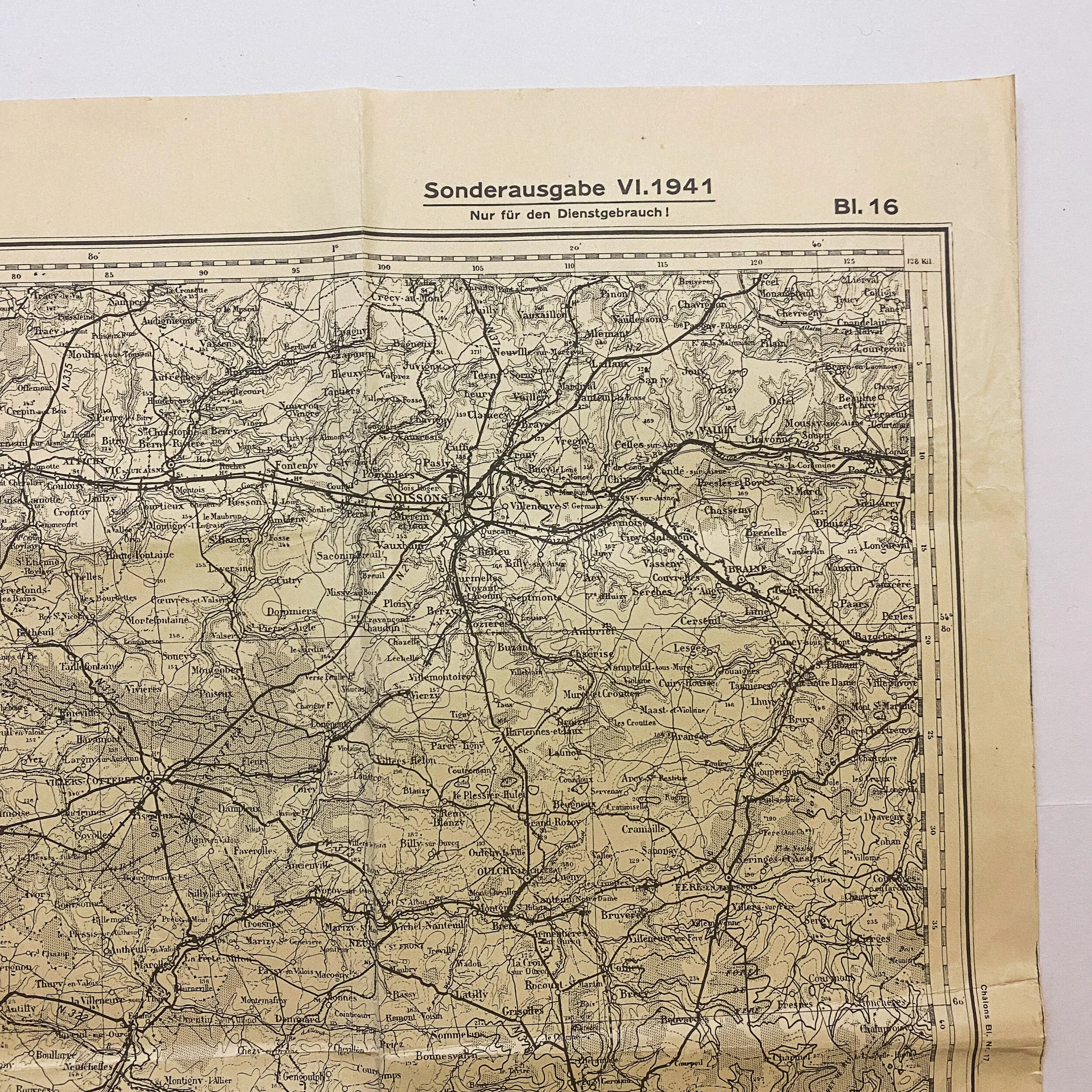
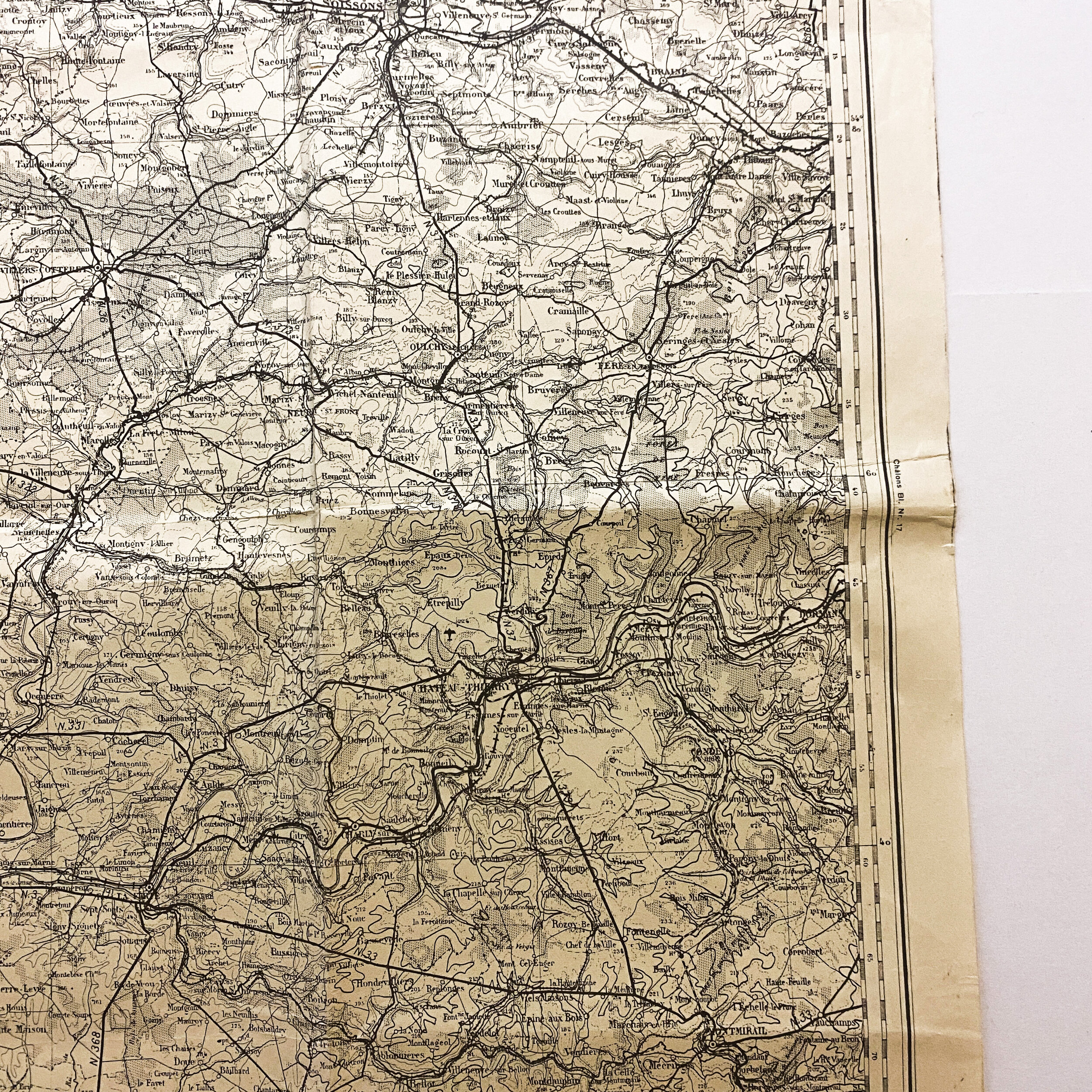
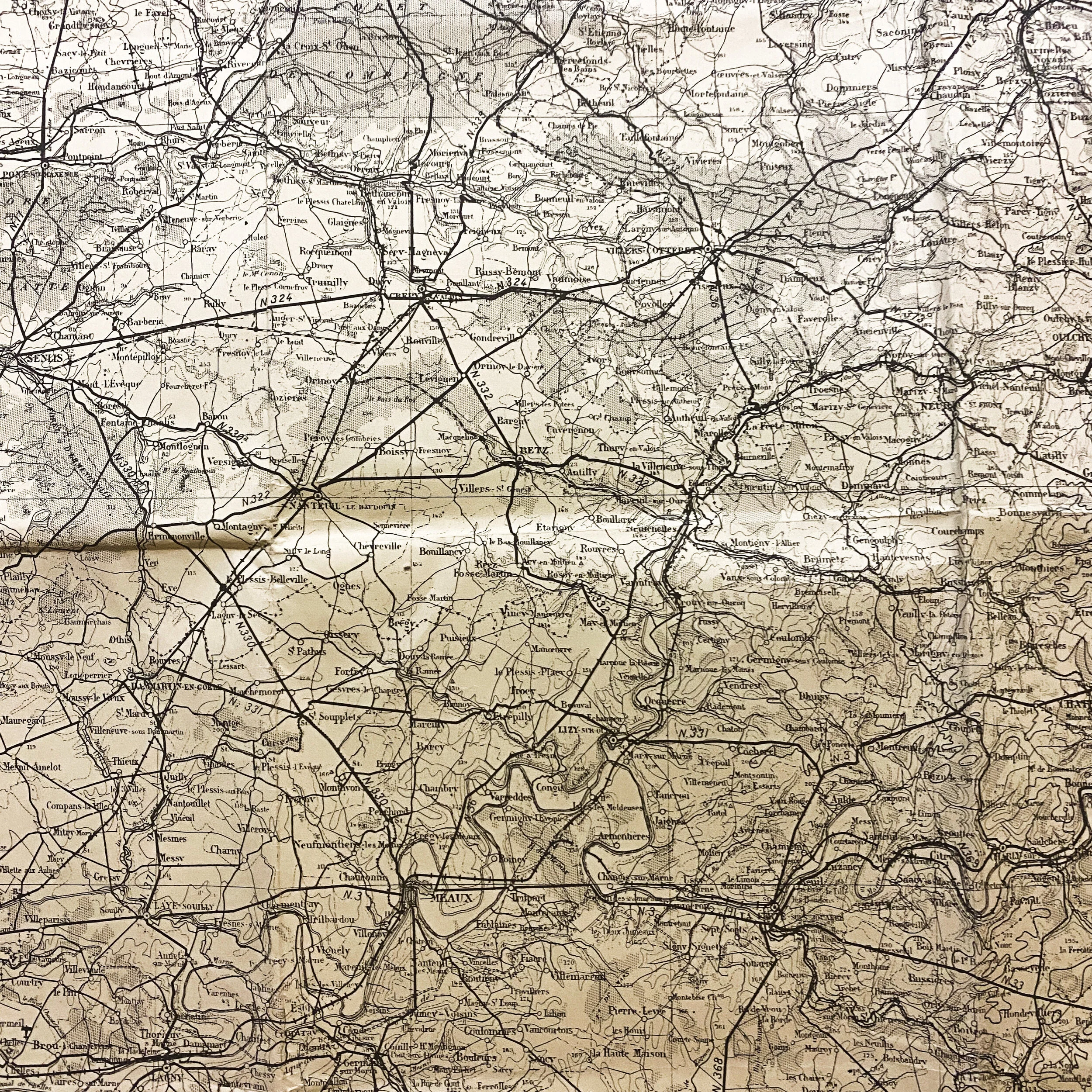


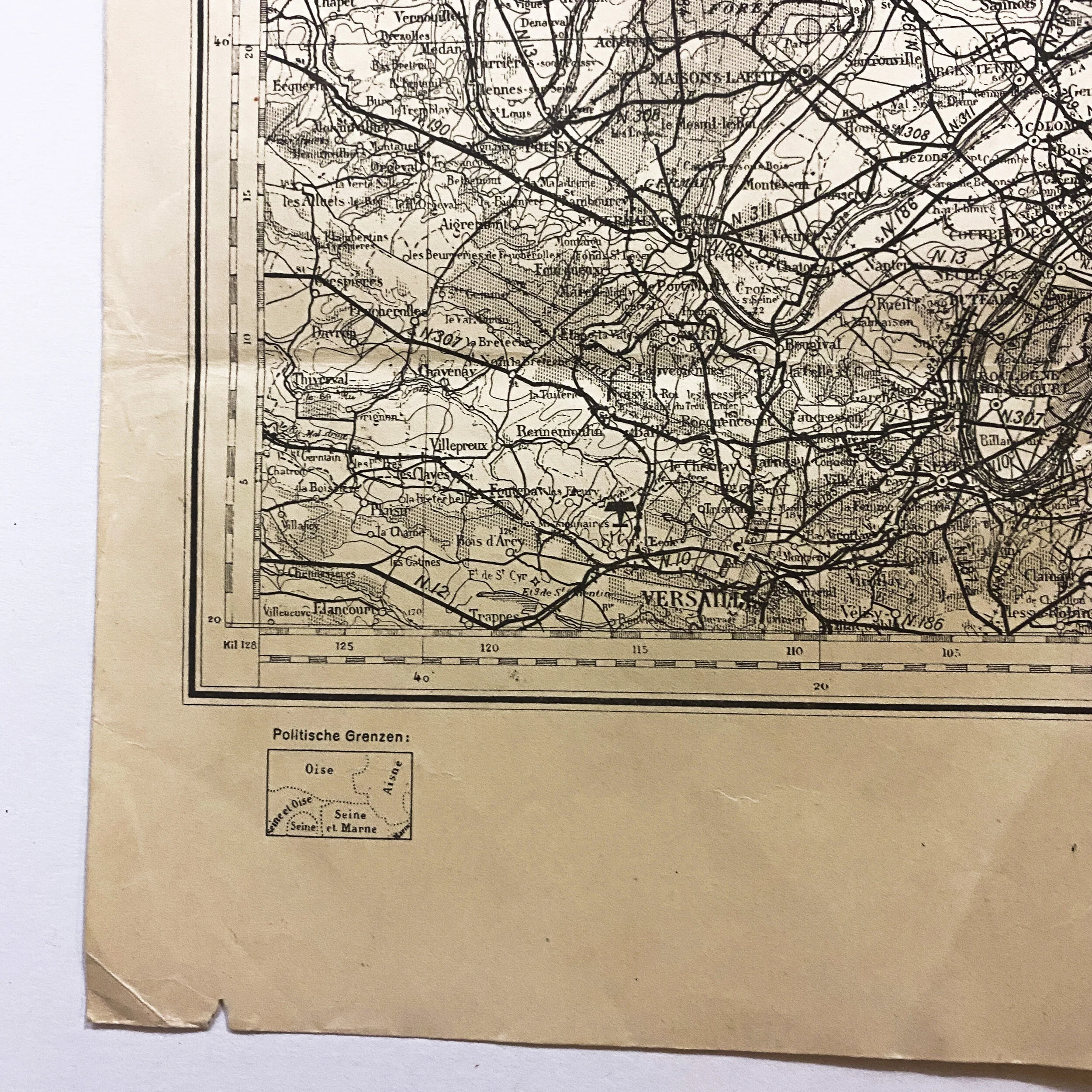
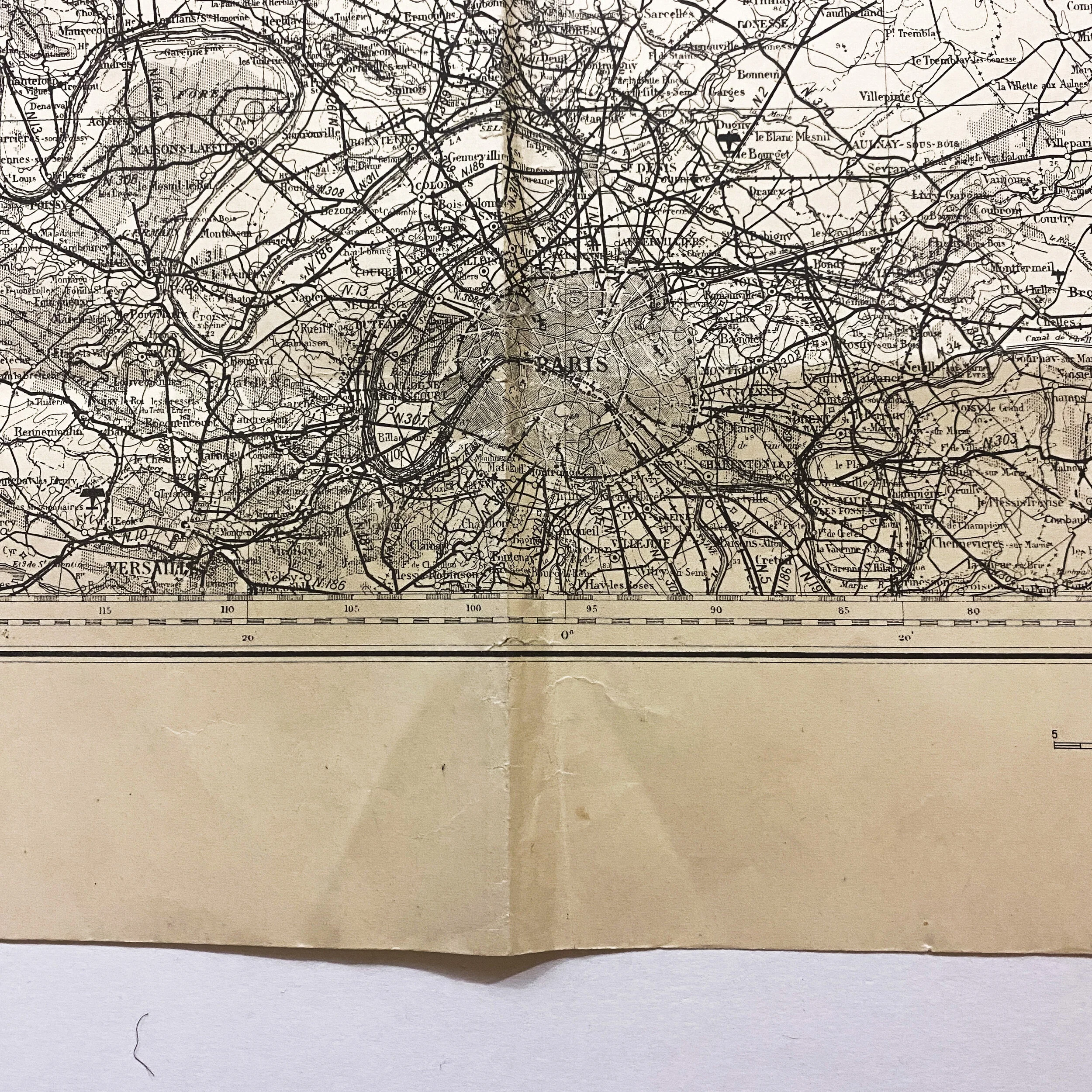
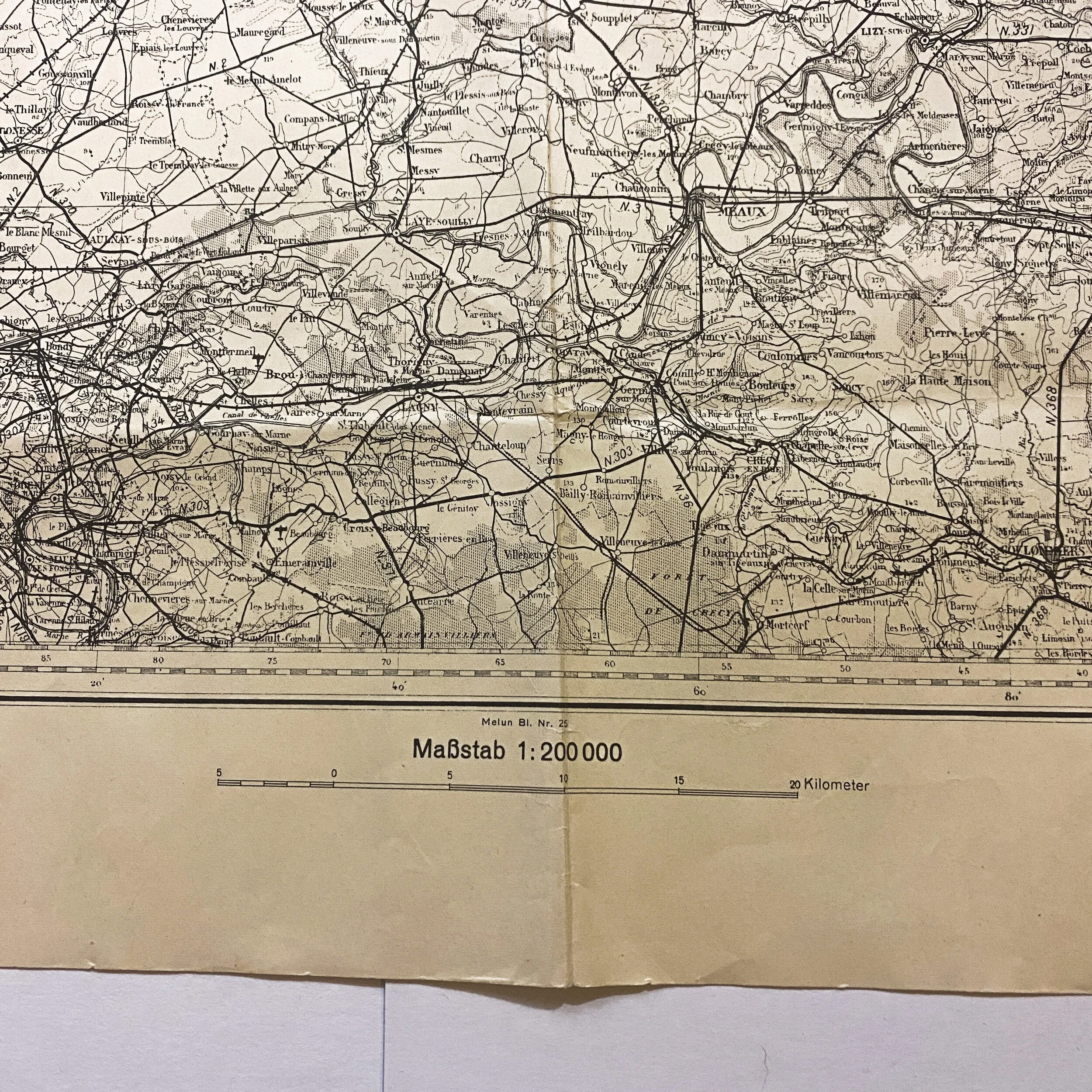
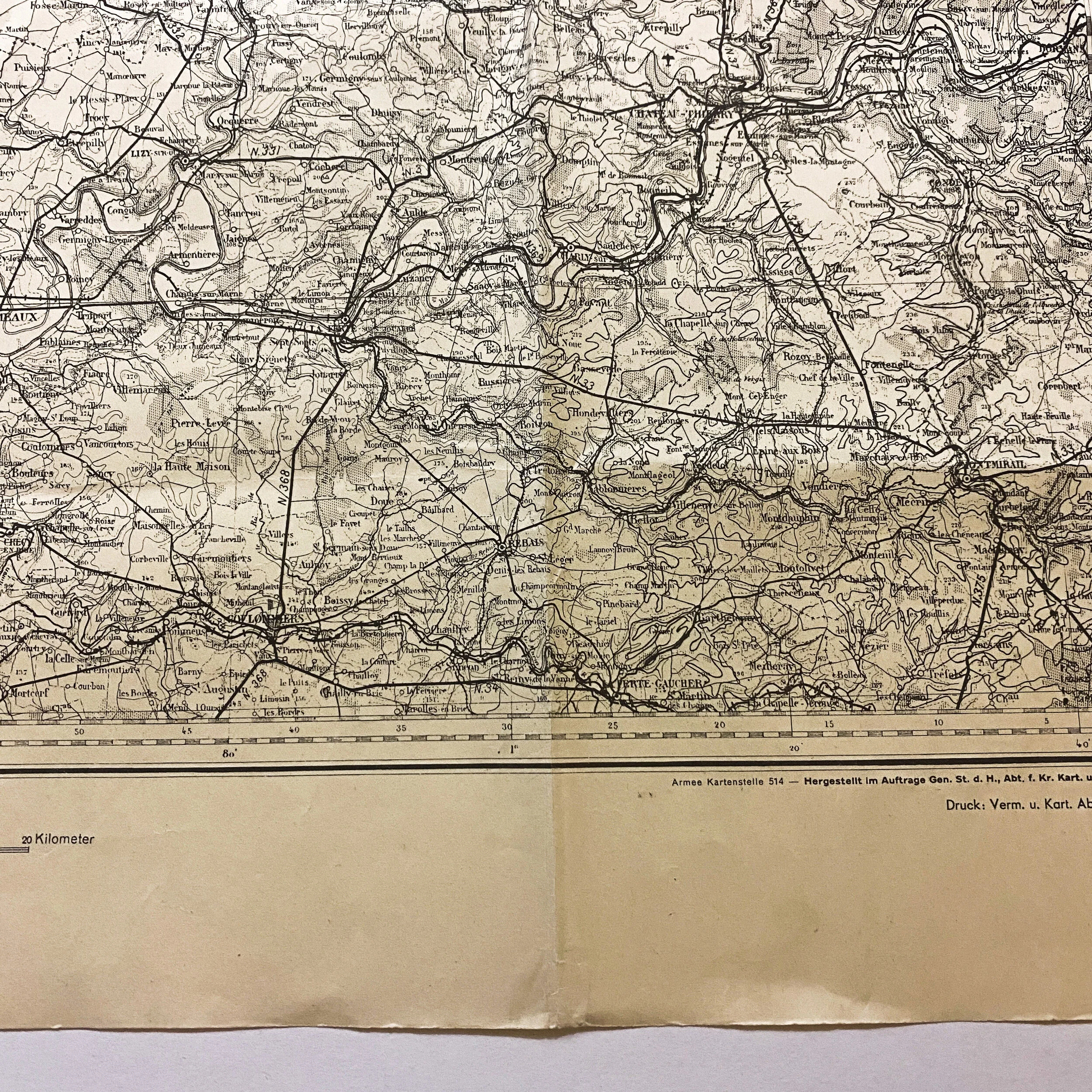


German 'Frankreich' Invasion of Paris Combat Map
Size: 27.5 x 20 inches
This original WWII German ‘Frankreich’ (France) map shows the major city of Paris as the Germans began to invade France and capture the key French city. After German troops invaded Poland in September 1939, Britain and France declared war on Germany. Despite this, there were no major battles between the three countries for several months, the so-called “Sitzkrieg” or “phony war.” That changed drastically with the German invasion of France in May 1940. In six short weeks, the Germans defeated the French Army, taking almost two million prisoners. On June 14th, the Nazis occupied Paris. French Prime Minister Paul Reynaud resigned on June 16th, and was replaced by World War I hero Marshal Phillipe Petain, who asked the Germans for an armistice. The agreement was signed on June 22nd. According to the terms of the agreement, the North of France would be occupied by the Germans; the rest of the country would remain nominally independent, but a de facto German puppet state, with its capital in Vichy.
BBC report of Germans taking Paris:
German troops marched into Paris in the early hours of this morning as French and allied forces retreated.
The enemy met no resistance as it entered the capital, which was declared an open town yesterday by the city's French military governor, General Hering.
French troops withdrew to avoid a violent battle and total destruction of Paris. They are believed to have taken a new line of defense south of the city.
The Germans advanced from the north-east and north-west and shortly afterwards tanks rumbled past the Arc de Triomphe down the Champs Elysees to the Place de la Concorde.
Government retreats
All shops and businesses in Paris have been closed and shuttered and there are unconfirmed reports the French government has now left Tours, in central France, and gone further south to Bordeaux.
The enemy has been advancing toward Paris since they took Dunkirk ten days ago, forcing a huge evacuation of the port, resulting in thousands of allied deaths and casualties.
As the Germans approached, the French premier Paul Reynaud broadcast an appeal for all free men to come to the aid of France.
British troops arrived south of Paris and began fighting, with their French counterparts, day and night to stem the advance of the Germans.
The RAF has spent the past few days bombing German convoys, supply columns, mechanised units and lines of communications.
All the bridges behind enemy lines from Rouen to Mantes have been destroyed by the RAF to stop the enemy bringing up material and reserves.
German aircraft responded with air raids east of Paris and at Evreux and Mantes, west of the capital.